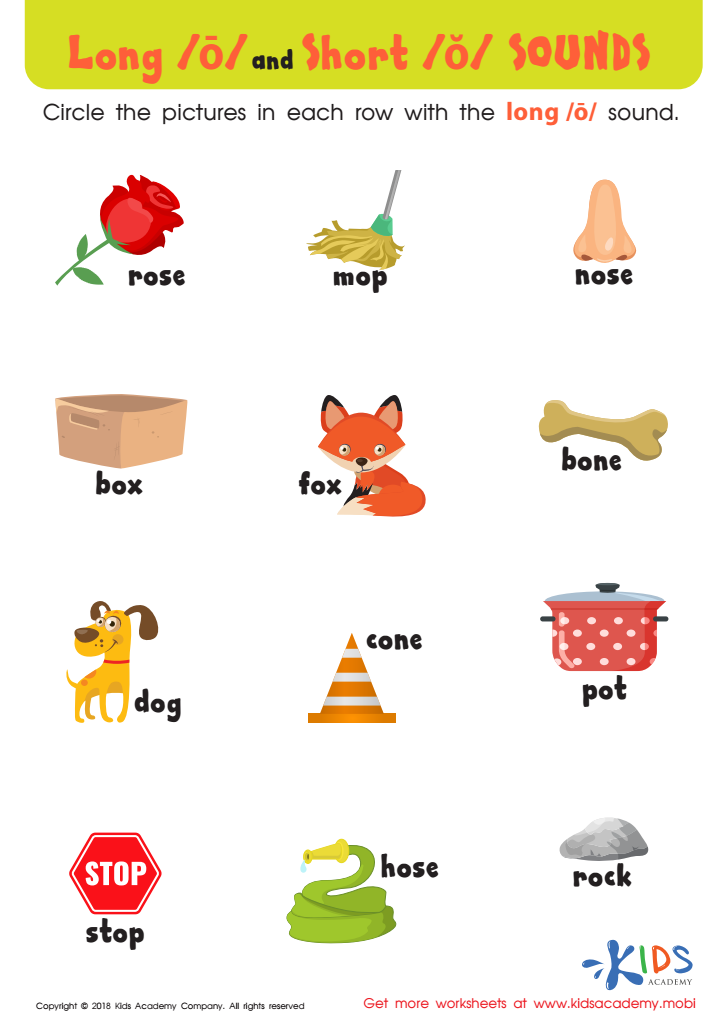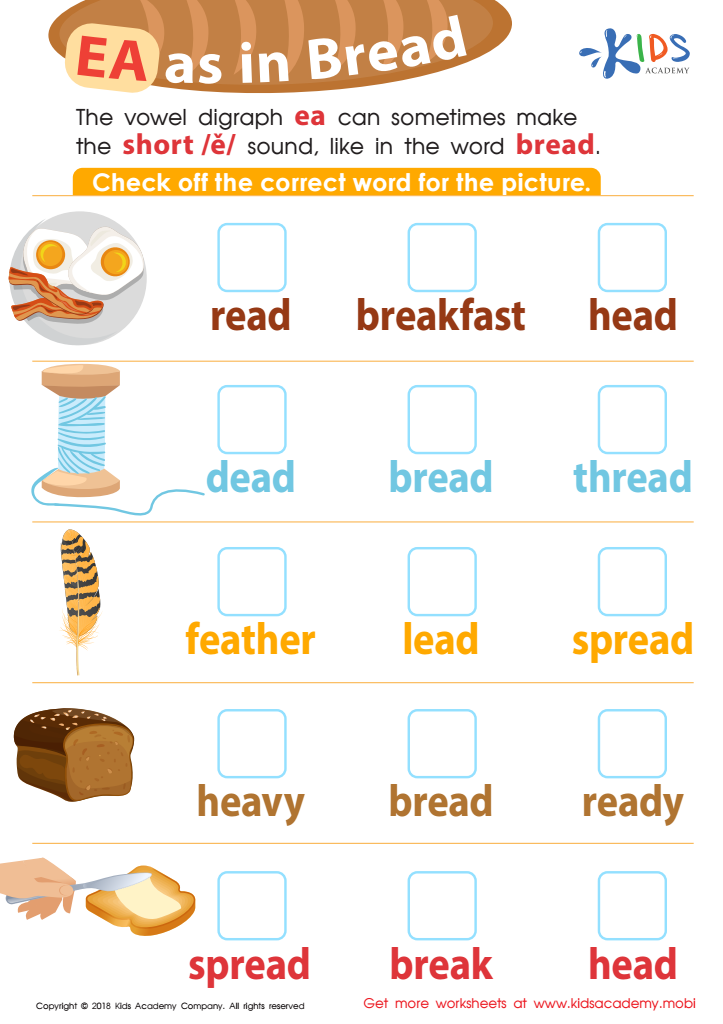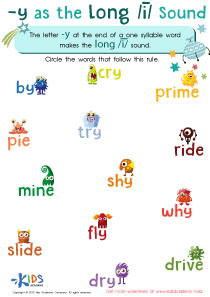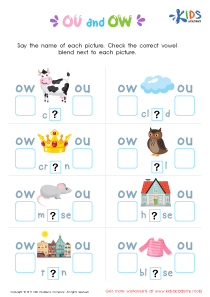Reading comprehension Short Vowels Worksheets for Ages 7-9
5 filtered results
-
From - To
Enhance your child's reading skills with our "Reading Comprehension Short Vowels Worksheets for Ages 7-9." Tailored for young learners, these worksheets focus on understanding short vowel sounds through fun and engaging activities. Each sheet presents short stories or sentences that highlight specific short vowels, followed by questions to test comprehension and reinforce learning. Ideal for classroom or home use, our worksheets support literacy development and boost reading confidence. Explore our collection today and help your child master the building blocks of reading in a fun and interactive way. Achieve learning success with Kids Academy!


Reading: Long O and Short O Sounds Worksheet


Short Vowels /e/, /i/, and /u/ Worksheet


Long and Short Vowel Sentences: Assessment Worksheet


Reading: EA as in Bread Worksheet


Long and Short E Worksheet
Reading comprehension and mastering short vowels are crucial skills for children aged 7-9 for several reasons. At this age, children transition from "learning to read" to "reading to learn." Being able to decode short vowel sounds accurately enhances their ability to read fluently. Short vowels appear in many common words that serve as building blocks for more complex texts, making their mastery essential for reading proficiency.
For teachers, emphasizing short vowels ensures that their students develop strong foundational literacy skills. When students struggle with short vowels, they may face difficulties in spelling, decoding, and understanding words, ultimately affecting their overall reading comprehension. On the other hand, competent decoding of short vowels boosts confidence, leading to improved participation and engagement in the classroom.
Parents also play a pivotal role. At home, reinforcing what children learn at school can make a significant difference. By reading together and practicing short vowel sounds, parents can solidify their child’s learning, creating a supportive and enriching environment. In a broader context, developing these skills early on equips children with the tools they need for lifelong reading and academic success.
In essence, focusing on reading comprehension and short vowels for children aged 7-9 sets the stage for not only academic achievement but also a lifelong love for reading.
 Assign to My Students
Assign to My Students
















